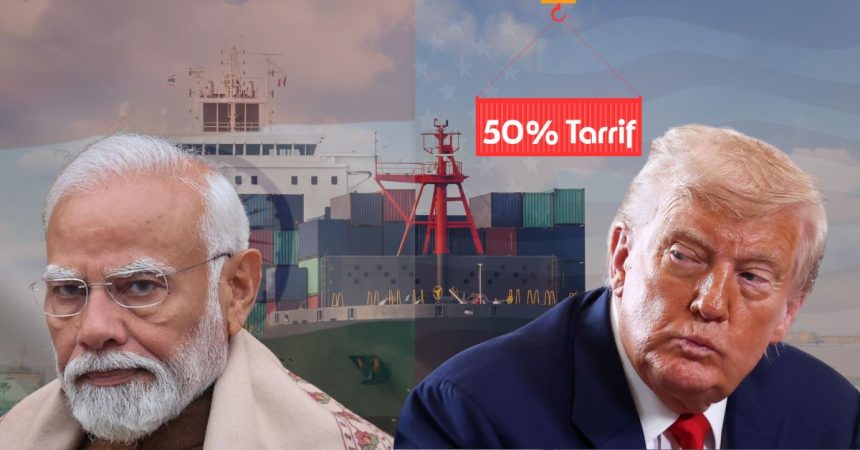United States President Donald Trump has signed an executive order imposing an additional 25 percent tariff on Indian imports in response to New Delhi’s continued purchases of Russian oil.
The measure will raise the total tariff on Indian goods entering the US to 50 percent, among the highest rates imposed by Washington. The new tariff will take effect on 27 August, 21 days after the signing of the executive order.
India’s Ministry of External Affairs responded on Wednesday, reiterating its position on imports from Russia and describing the decision as “unfair, unjustified and unreasonable.”
“It is therefore extremely unfortunate that the US should choose to impose additional tariffs on India for actions that several other countries are also taking in their own national interest,” the ministry said in a statement. “India will take all actions necessary to protect its national interests.”
President Trump had previously warned of higher levies, accusing India of disregarding civilian deaths in Ukraine caused by “the Russian War Machine.”
In a statement on Wednesday, the White House said Russia’s actions in Ukraine “pose an ongoing threat to US national security and foreign policy, necessitating stronger measures to address the national emergency.” It stated that India’s imports of Russian oil undermine US efforts to counter Moscow’s activities in Ukraine. The statement also indicated that Washington will review the activities of other countries that import Russian oil and “recommend further actions to the President as needed.”
Russia’s largest exports are oil and gas, with China, India, and Turkey among its biggest buyers.
The tariff announcement came after Trump’s special envoy, Steve Witkoff, held talks in Moscow on Wednesday aimed at securing peace between Russia and Ukraine.
The additional duties will affect major Indian export sectors, including textiles, gems and jewellery, auto parts, and seafood, potentially impacting significant sources of employment. Electronics, including iPhones, and pharmaceuticals remain exempt for now.
India had previously described the threat of increased tariffs as “unjustified and unreasonable.” Officials have pointed out that the US initially encouraged Indian imports of Russian gas at the start of the conflict to help stabilise global energy markets. They noted that India increased imports from Russia after traditional suppliers diverted shipments to Europe following the outbreak of the war.
The move underscores the Trump administration’s readiness to impose sanctions related to the Ukraine conflict even on close allies and major trading partners. It may also serve as a warning to other nations ahead of Friday’s deadline, when the president is expected to announce further sanctions on Russia and could impose 100 percent tariffs on countries that continue to purchase Russian oil.
This is not the first instance of the Trump administration applying secondary tariffs. Similar measures remain in place to penalise buyers of Venezuelan oil.
India has criticised the US, its largest trading partner, for implementing such levies while continuing some trade with Russia. Last year, US-Russia trade was estimated at $3.5 billion despite existing sanctions and tariffs.
President Trump and Prime Minister Narendra Modi have previously referred to each other as friends, attending political rallies in each other’s countries during Trump’s first term. However, the latest tariff decision suggests growing divergences between New Delhi and Washington.
The Federation of Indian Export Organisations called the new tariffs “extremely shocking,” warning that they will affect 55 percent of Indian exports to the US. The Global Trade Research Initiative, a Delhi-based think tank, estimated the measures could make Indian goods significantly more expensive in the American market and reduce exports to the US by 40 to 50 percent.
“India should remain calm, avoid retaliation for at least six months, and recognise that meaningful trade negotiations with the US cannot proceed under threats or mistrust,” said Ajay Srivastava, former Indian trade official and head of GTRI.







